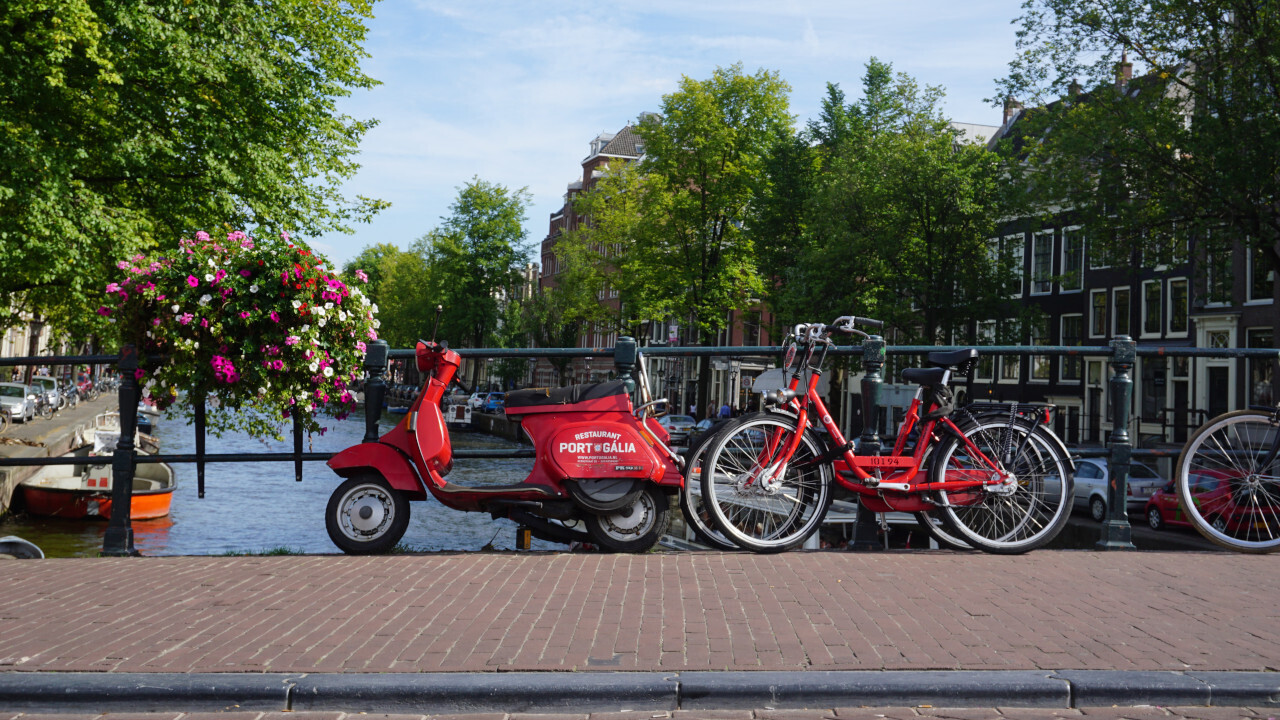This article was originally published by Christopher Carey on Cities Today, the leading news platform on urban mobility and innovation, reaching an international audience of city leaders. For the latest updates follow Cities Today on Twitter, Facebook, LinkedIn, Instagram, and YouTube, or sign up for Cities Today News.
Five Dutch cities – Amsterdam, Utrecht, Eindhoven, Rotterdam and The Hague – are collaborating to establish a new standard for the exchange of data between cities and shared mobility operators.
In partnership with the Dutch Ministry of Infrastructure and Water, the five cities, known as the G-5, will develop the City Data Standard – Mobility (CDS-M). The platform will allow information on mobility patterns, including the use of shared vehicles, traffic flows and parking, to be shared in compliance with Europe’s strict General Data Protection Regulation (GDPR).
So far, the working group has been focused on internal capacity-building, and members are set to delve into key thematic areas from early June.
Speaking to Cities Today, Ross Curzon-Butler, Chairperson of the City of Amsterdam’s Data Specification for Mobility Working Group and Chief Technology Officer at Dutch start-up Cargoroo, said: “The key thing is about making sure the data is accessible to cities in a way that is proportional and compliant with GDPR.
“What we have to recognize is that cities are going to ask transport firms for data. This is coming, whether we like it or not. We therefore have the impetus to make sure that the data requested is in a standardized way, and that there’s a standardized understanding of why they’re being asked for that data.”
Standards alignment
Curzon-Butler sees the new standard as complementing, rather than competing with, the Open Mobility Foundation’s Mobility Data Specification (MDS), which is already used in several European cities, including Lisbon.
“The different parties that we’ve spoken to, both city-based data processors and private companies, have been very positive and accepting,” he said, adding that: “We’re not trying to create yet another standard, we’re trying to create alignment behind all these things that we see in Europe…and allow standards to become fit for purpose.”
The CDS-M consists of the “standard”, the technical design, and the “agreement”, that details which organizations are involved in data processing. The agreement framework is now under development and will be established by a working group comprising mobility operators, urban planners, data scientists, code developers, data protection officers, and security experts.
“If you’re a city, or a data processor or a transport operator and you start asking people for different data points and asking for it in different formats, and across different standards, it becomes unmanageable,” Curzon-Butler said.
“And the development time in all of these things is already high enough, so what we’re trying to do is normalize the data flow as much as possible, so that everyone in that data chain doesn’t have these huge overheads that just grow and grow, where you’re then having to manage multiple dialects and standards and trying to understand ‘who’s got what data and what are they really doing with it?’.
“And in Europe we have GDPR, which is a very serious regulation that we have to be very mindful and aware of.”
He referenced a recent case where the Dutch Data Protection Authority (DPA) fined the City of Enschede €600,000 (US$730,000) for its use of Wi-Fi sensors to measure the number of people in the city centre.
It is understood to be the first time the regulator has imposed a fine on a government body under the GDPR but the case could have implications for cities well beyond the Netherlands. Enschede is appealing the decision.
Working teams
Seven different teams have been set up to focus on key areas, including: the development of the standard, agreements, use-cases, co-collaboration between existing standards, communications, security and legal issues.
The working group will test the initial version of the CDS-M on existing use-cases from the five biggest Dutch cities. These will include shared cars and cross-city permits in Rotterdam, e-hubs and e-scooters in Eindhoven, shared carrier bikes in Utrecht and shared e-scooters in Amsterdam and The Hague.
While the group will initially focus on the five Dutch cities, the longer-term aim is to work towards developing a European data standard.
European city network POLIS will facilitate the collaboration between cities and mobility providers towards agreement on a common data specification for mobility data-sharing.
Do EVs excite your electrons? Do ebikes get your wheels spinning? Do self-driving cars get you all charged up?
Then you need the weekly SHIFT newsletter in your life. Click here to sign up.
Get the TNW newsletter
Get the most important tech news in your inbox each week.





